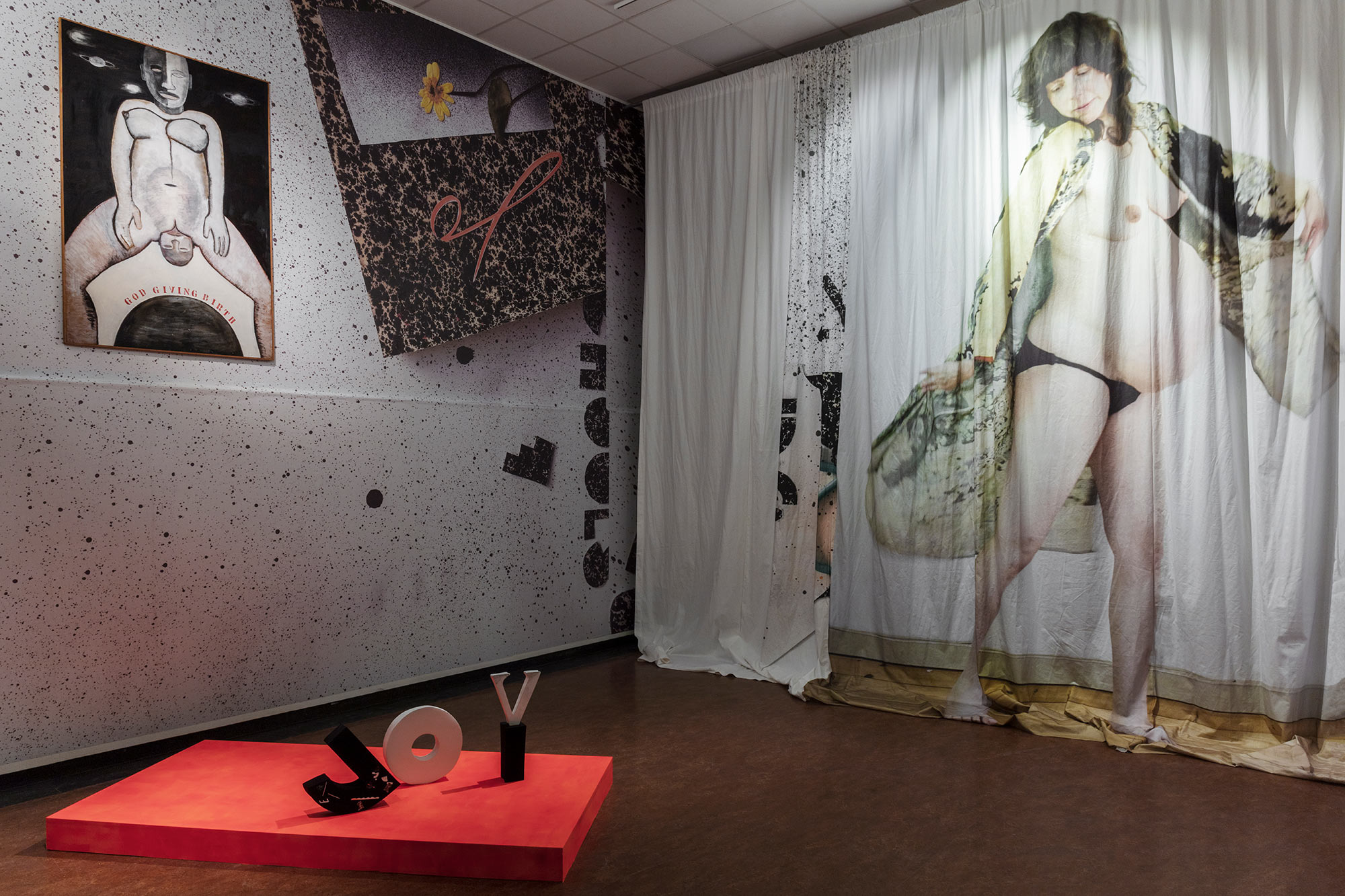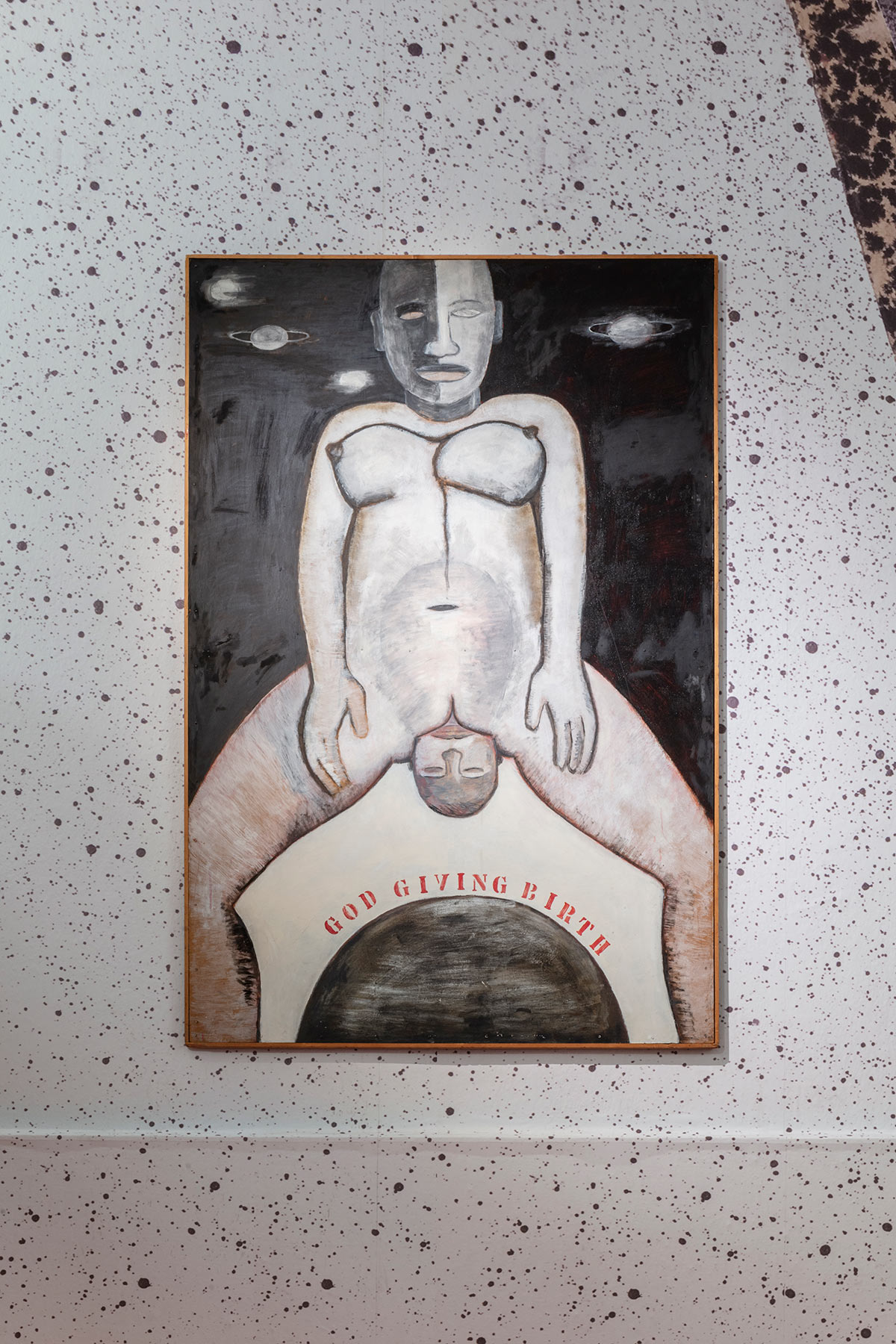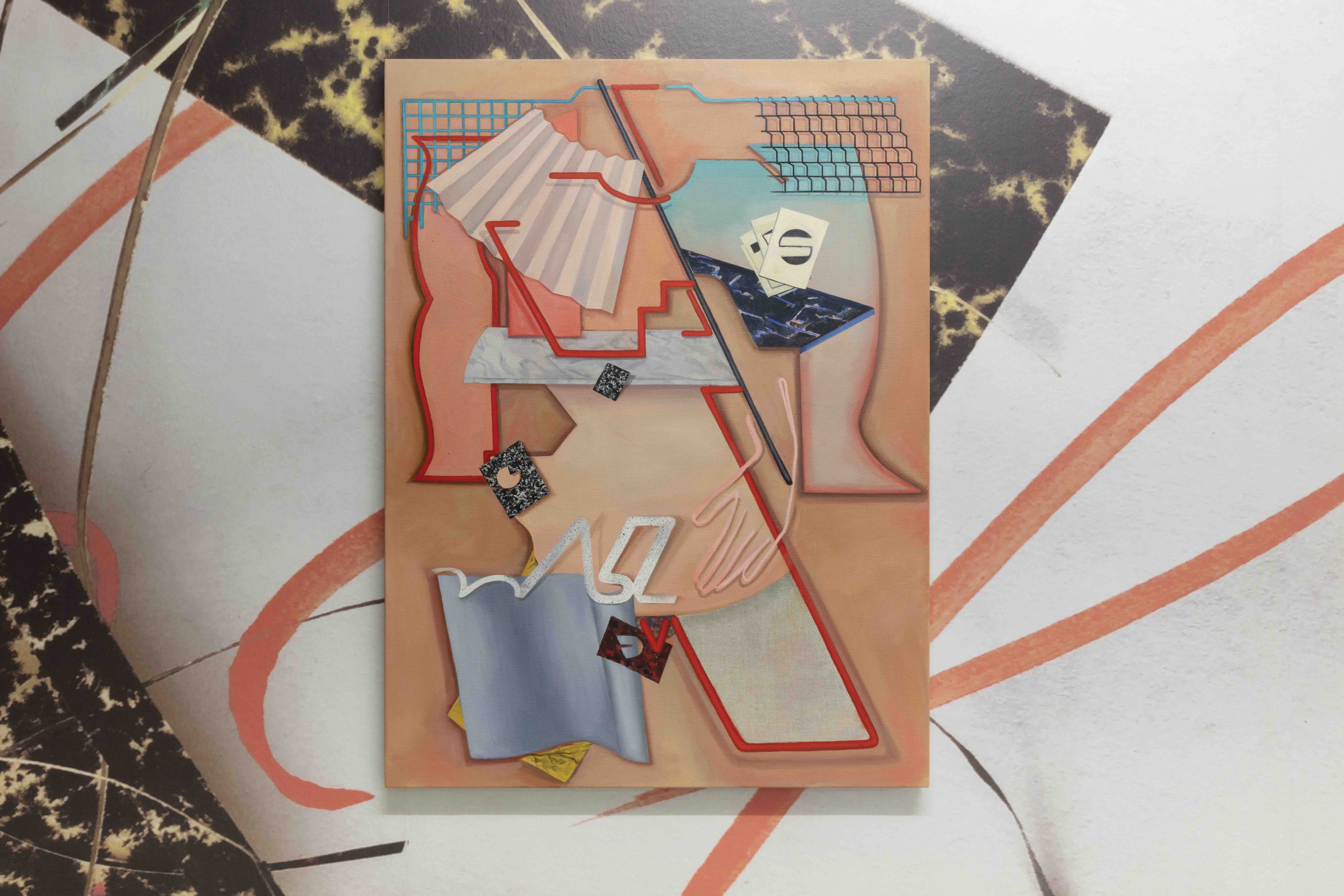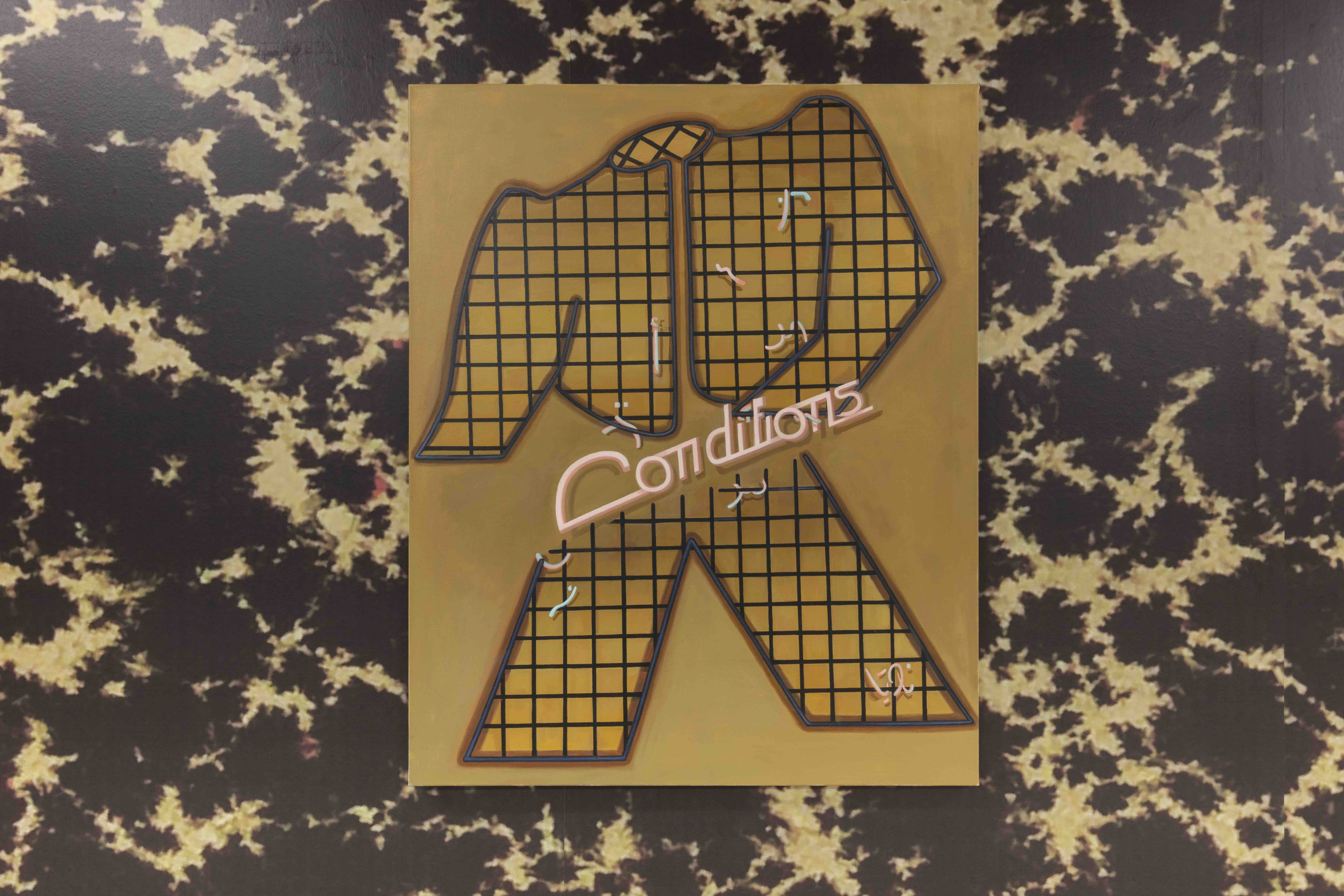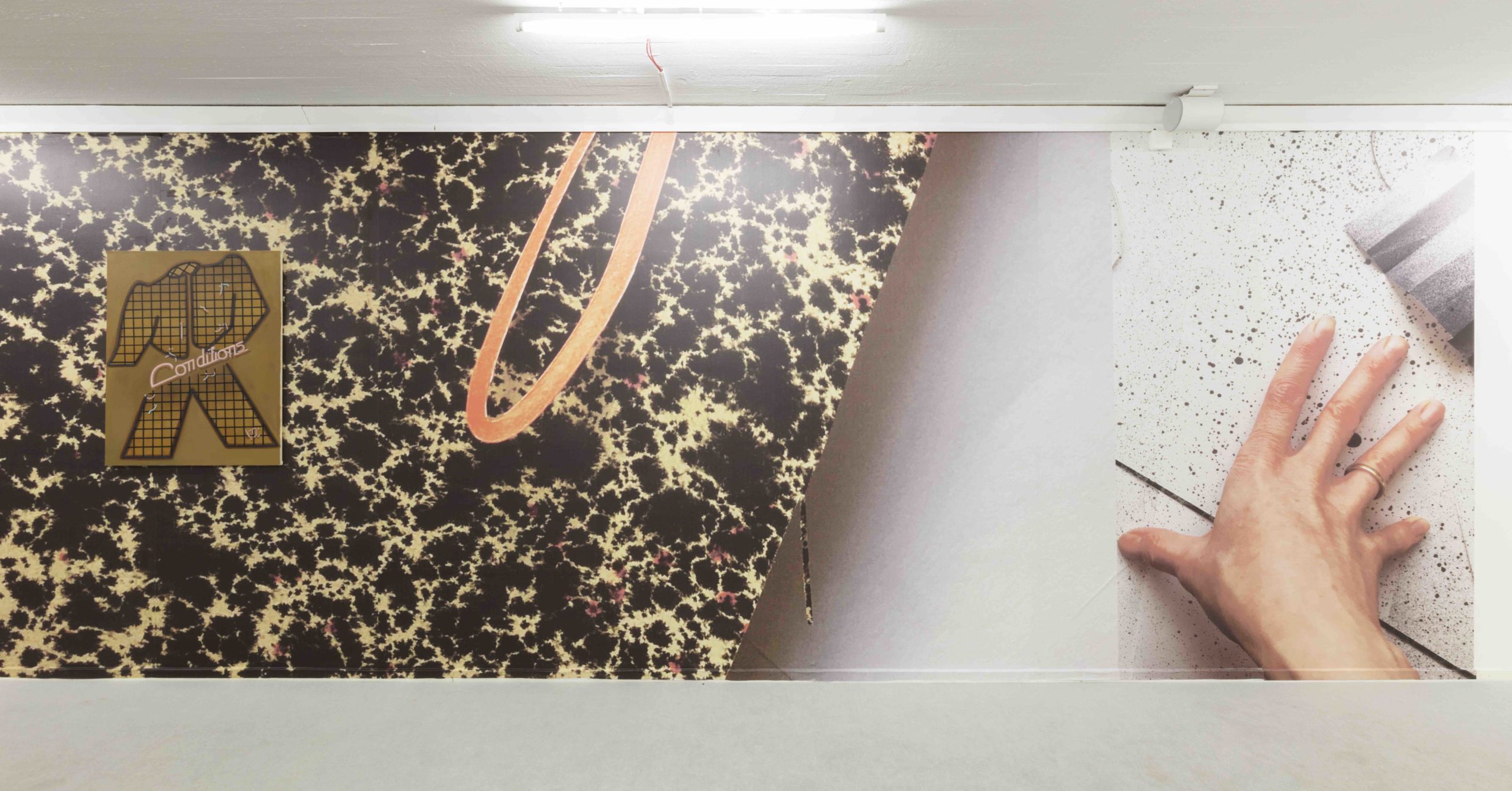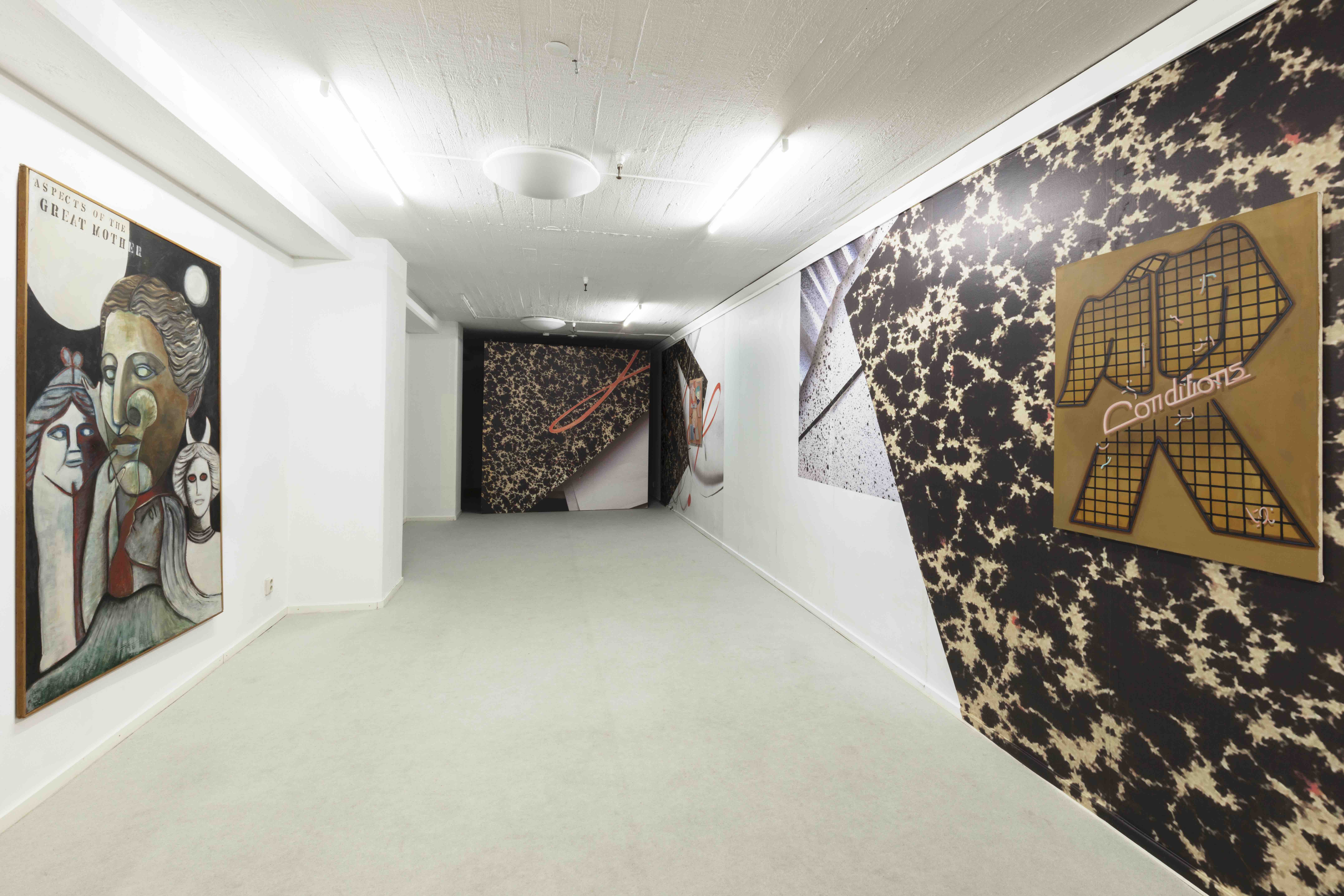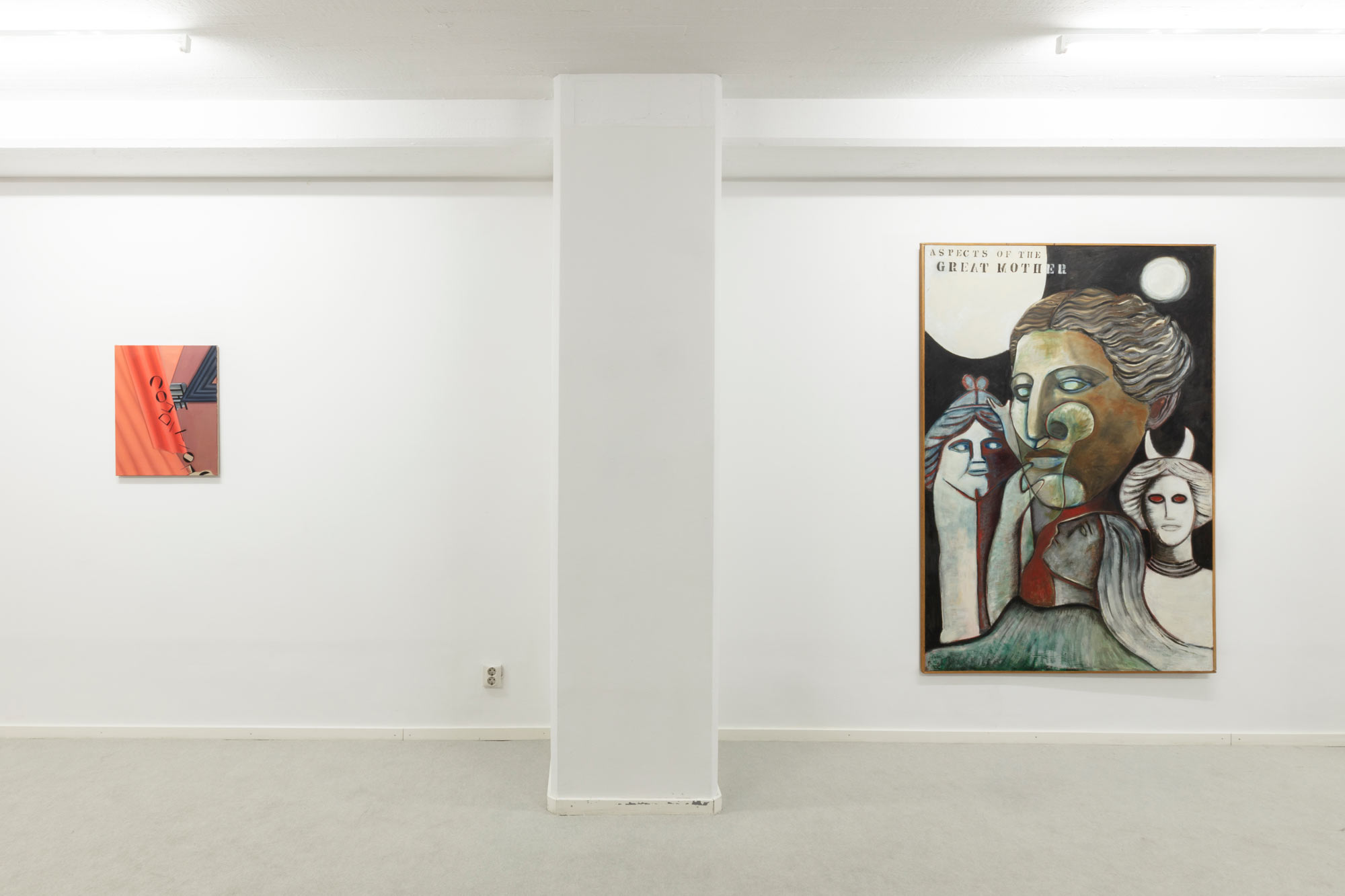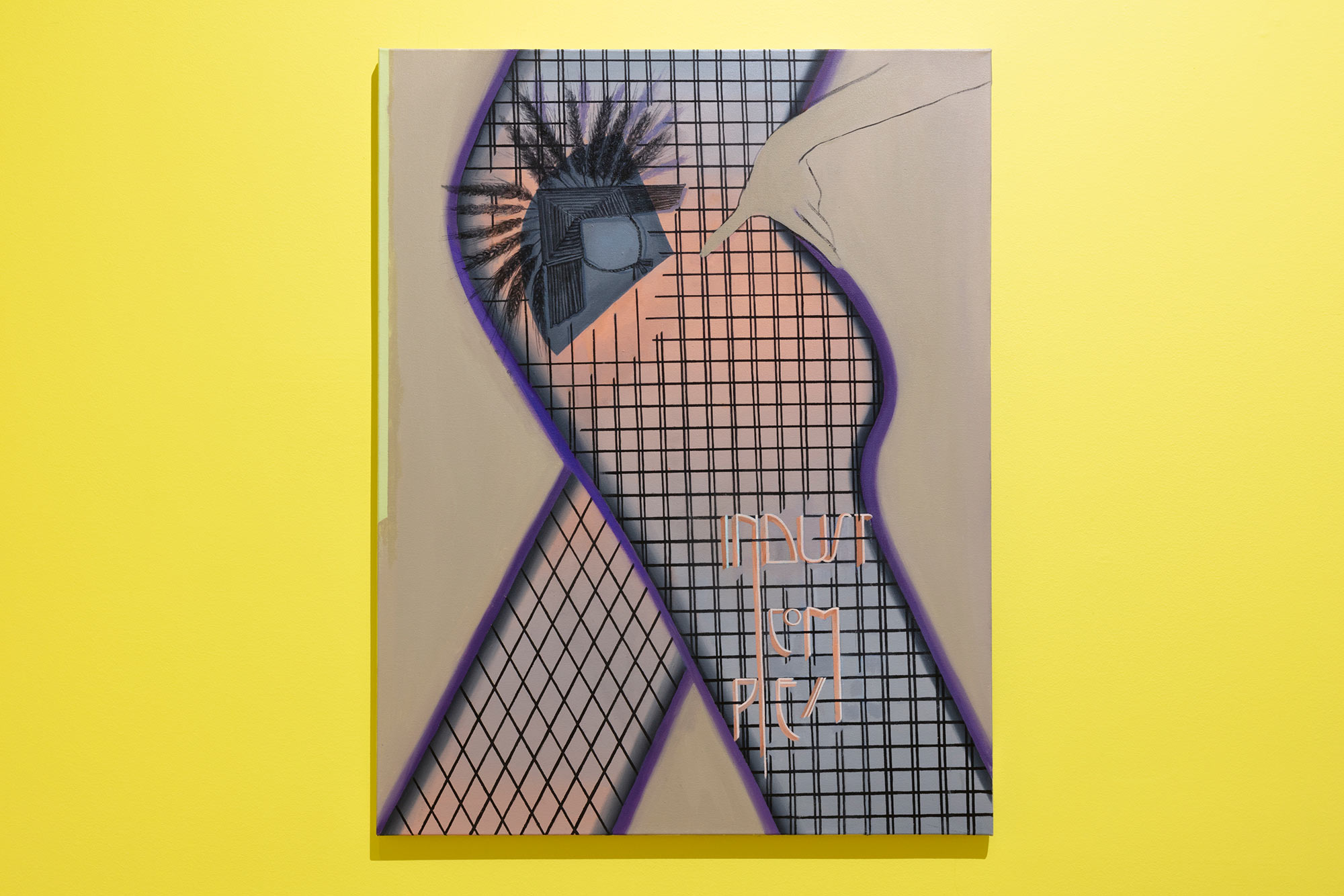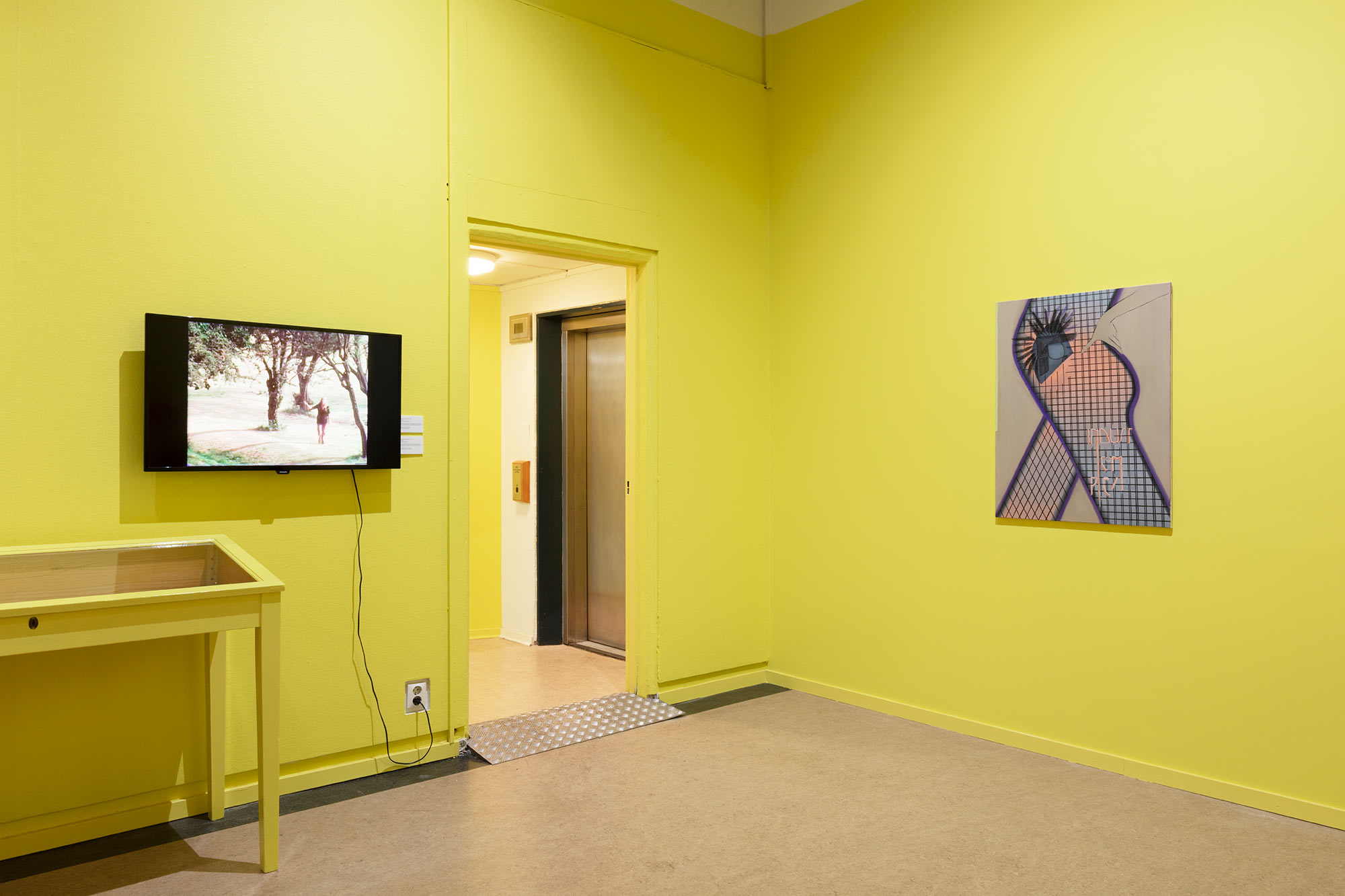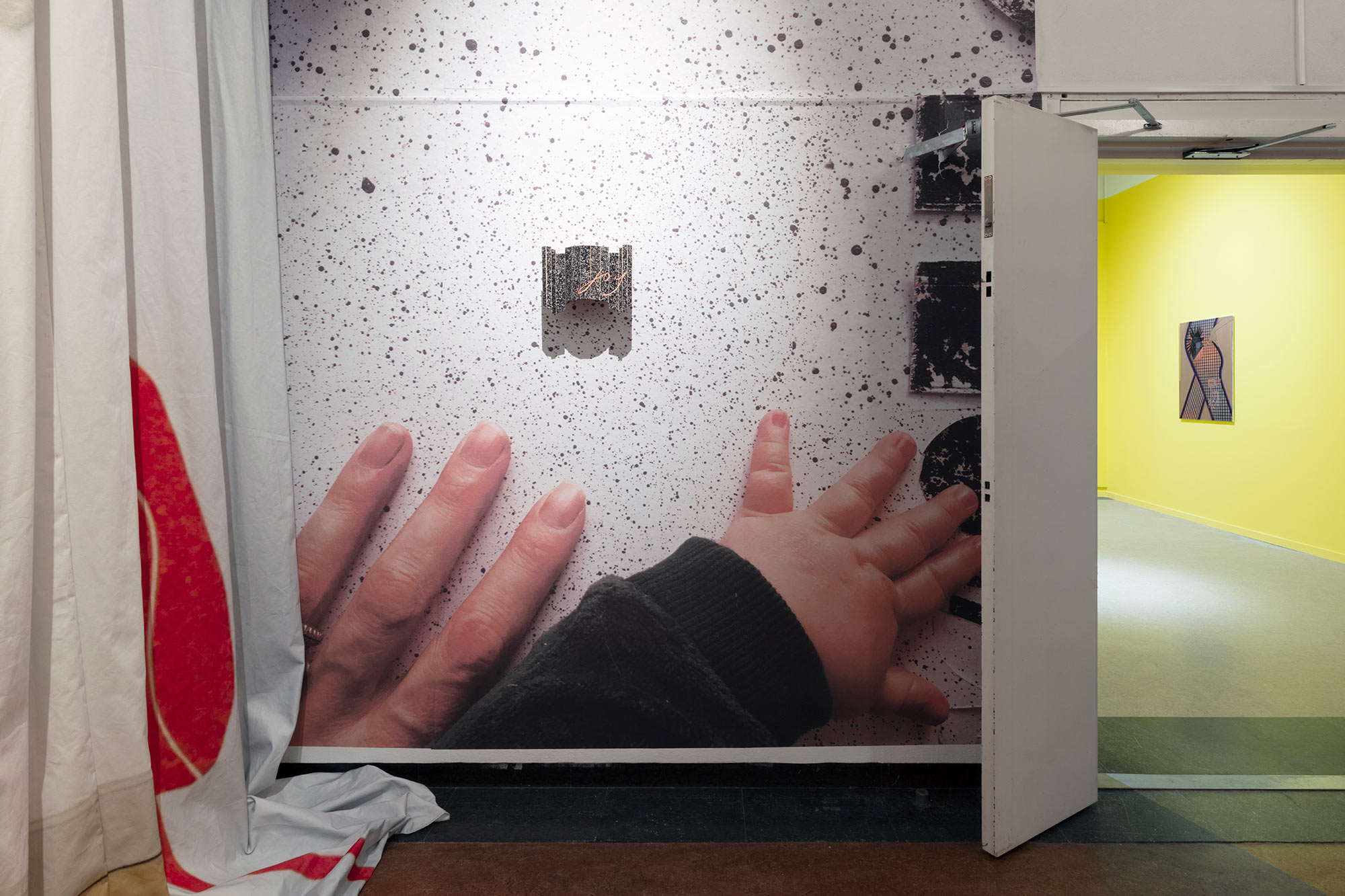Nadia Hebson
Monica Sjöö
17.3 – 29.5 2021
Mint, ABF Stockholm, Sveavägen 41, Stockholm
In Scène d’Amour, Nadia Hebson presents a multidisciplinary work which continues her exploration of artistic recuperation through intuitive forms. Issuing from the desire to consider alternate Painting histories in the present, over the last decade Hebson has evolved a distinct and idiosyncratic mode of working that merges the role of artist, scholar and curator to realise constellations of objects, apparel, paintings, prints and text that think through the legacies of older peers, whilst making Hebson’s own subjective expression visible.
In Scène d’Amour the work of Swedish painter, writer, radical anarcho-eco-feminist Monica Sjöö (b.1931 Härnösand d.2005 Bristol) is presented alongside Hebson’s own. In response to the conditions of this current moment and Hebson’s own circumstance as a new mother, the exhibition, rather than offering conclusions, seeks instead to initiate dialogue around Sjöö’s expanded legacy and the intimate relationship between her painting, graphic design, activism and matriarchal scholarship as well as her role as an early exponent of the Goddess movement. Scène d’Amour is intended as both an introduction and an opportunity to pay close attention: where Hebson’s private comprehension of Sjöö’s work can form.
In parallel with the exhibition, Hebson has invited artists, art historians, curators and colleagues/friends to share in company their consideration and responses to Sjöö’s practice through public discussion and a screening. Over the course of the exhibition Hebson will realise new work and text in response to this concentrated period of exchange and contemplation, which will be installed sporadically throughout its duration.
Nadia Hebson is a British artist and educator based in Sweden. She uses painting, objects, large scale prints, apparel and text, to explore the work and biographies of older colleagues, including: American painter Christina Ramberg, British painters Winifred Knights and Marion Adnams and most recently, Dora Gordine as part of the Dorich House Museum Studio Residency, Kingston University, London.
Thank you Museum Anna Nordlander and the Swedish Labour Movement’s Archives and Library
Programme
Detta var det första av tre diskursiva evenemang som kommer att utforska den svenska målaren, författaren och radikala ekofeministen Monica Sjöös liv och arbete, samt samtida konstnärer, curatorer och konsthistorikers pågående konstnärliga rekupereringsprojekt. Hur kan vi kritiskt utforska komplexiteten i historiska personers liv och arbete samtidigt som vi undviker hagiografiska läsningar? Dessa evenemang arrangeras av Mint och är en del av Hebsons pågående forskningsprojekt Destroy She Said och realiseras med stöd från Kungliga konsthögskolan i Stockholm.
This is the second conversation in the three part programme Thinking About Monica, which accompanies the exhibition Scène d’Amour at Mint and has been realised through the support of the Royal Institute of Art Stockholm’s artistic research fund as part of the research project Destroy She Said.
